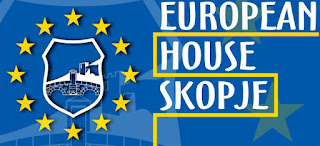Project Summary: The Empowering Youth with Disabilities through Entrepreneurship (EYDE) project aims to promote the social and economic inclusion of youth with disabilities by providing them with entrepreneurship training, mentorship, and access to funding. The project will be implemented through a partnership between the public and private sectors, including government agencies, non-profit organizations, and private companies.
Project Objectives:
1. To provide entrepreneurship training to 50 youth with disabilities aged 18-30 in the pilot phase, with the goal of helping them develop the skills and knowledge needed to start and run a successful business.
2. To provide mentorship to the youth with disabilities during the pilot phase, connecting them with experienced entrepreneurs who can offer guidance and support as they develop their businesses.
3. To provide access to funding for the youth with disabilities in the pilot phase, allowing them to secure the necessary capital to start or expand their businesses.
4. To promote greater awareness of the potential of youth with disabilities to be successful entrepreneurs, and to help break down stereotypes and negative attitudes towards this population.
Project Activities:
1. Conduct a needs assessment to identify the specific challenges and barriers faced by youth with disabilities in starting and running a business.
2. Develop an entrepreneurship training curriculum tailored to the needs of youth with disabilities, with input from stakeholders from both the public and private sectors.
3. Recruit and select 50 youth with disabilities aged 18-30 to participate in the pilot phase of the project.
4. Provide entrepreneurship training to the youth with disabilities, using a combination of in-person and online learning methods.
5. Connect the youth with disabilities with experienced entrepreneurs who can serve as mentors, offering guidance and support as the youth develop their businesses.
6. Provide access to funding for the youth with disabilities in the pilot phase, through a combination of grants, loans, and crowdfunding campaigns.
7. Monitor and evaluate the progress of the youth with disabilities, assessing the impact of the entrepreneurship training, mentorship, and funding on their businesses and their overall well-being.
8. Promote the successes of the youth with disabilities, sharing their stories through social media, events, and other channels to help break down stereotypes and negative attitudes towards this population.
Project Outcomes:
1. 50 youth with disabilities will receive entrepreneurship training, mentorship, and access to funding, improving their skills, knowledge, and access to capital.
2. 30 new businesses will be started by the youth with disabilities in the pilot phase, creating jobs and promoting economic development.
3. Greater awareness of the potential of youth with disabilities to be successful entrepreneurs will be promoted, helping to break down stereotypes and negative attitudes towards this population.
4. The public and private sectors will collaborate to support the social and economic inclusion of youth with disabilities, setting a precedent for future partnerships and initiatives aimed at promoting inclusion.
Budget: The total budget for the EYDE project is estimated at $250,000, with funding from both public and private sources. This includes costs associated with developing the entrepreneurship training curriculum, providing mentorship and funding to the youth with disabilities, and monitoring and evaluating the project outcomes. The project will be implemented over a period of 12 months, with the option to extend the pilot phase based on the evaluation results.
Conclusion: The EYDE project offers a unique opportunity to promote the social and economic inclusion of youth with disabilities through a collaborative partnership between the public and private sectors. By providing entrepreneurship training, mentorship, and access to funding, the project aims to empower youth with disabilities to start and run successful businesses, creating jobs and promoting economic development while also challenging negative attitudes towards this population. With careful planning and implementation, the EYDE project has the potential to set a precedent for future initiatives aimed at promoting the inclusion of marginalized groups through active approaches. By demonstrating the effectiveness of public-private partnerships in promoting entrepreneurship among youth with disabilities, the project can inspire similar collaborations in other areas of inclusion.
Zoran Dimitrov


No comments:
Post a Comment